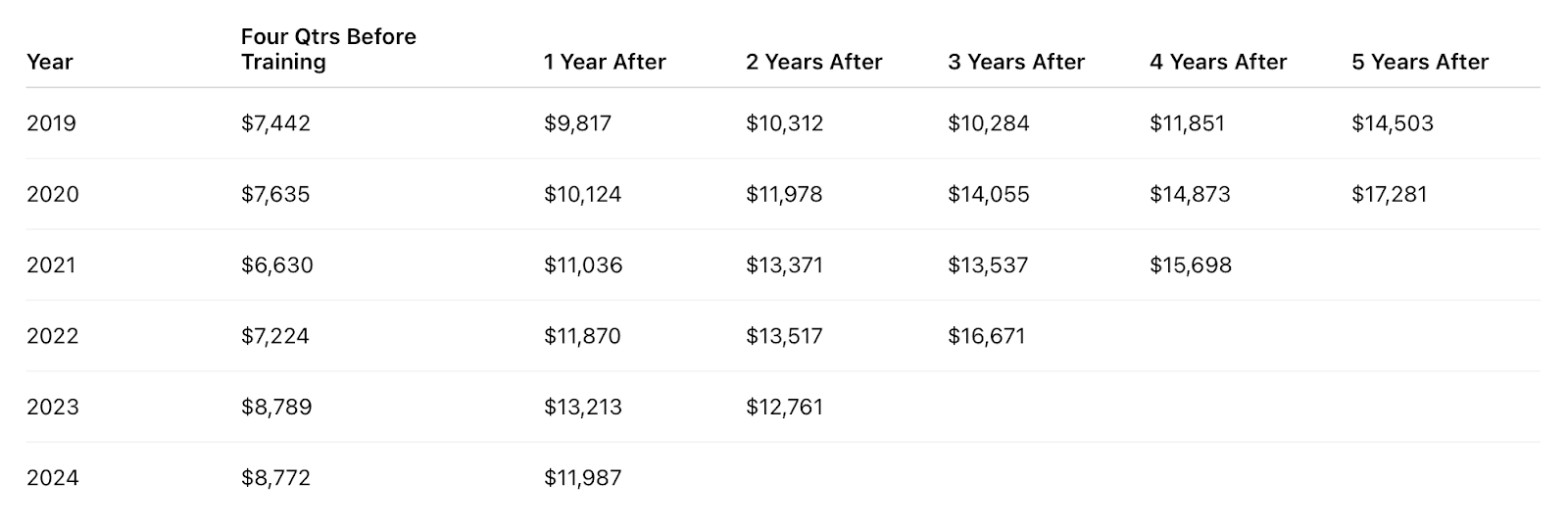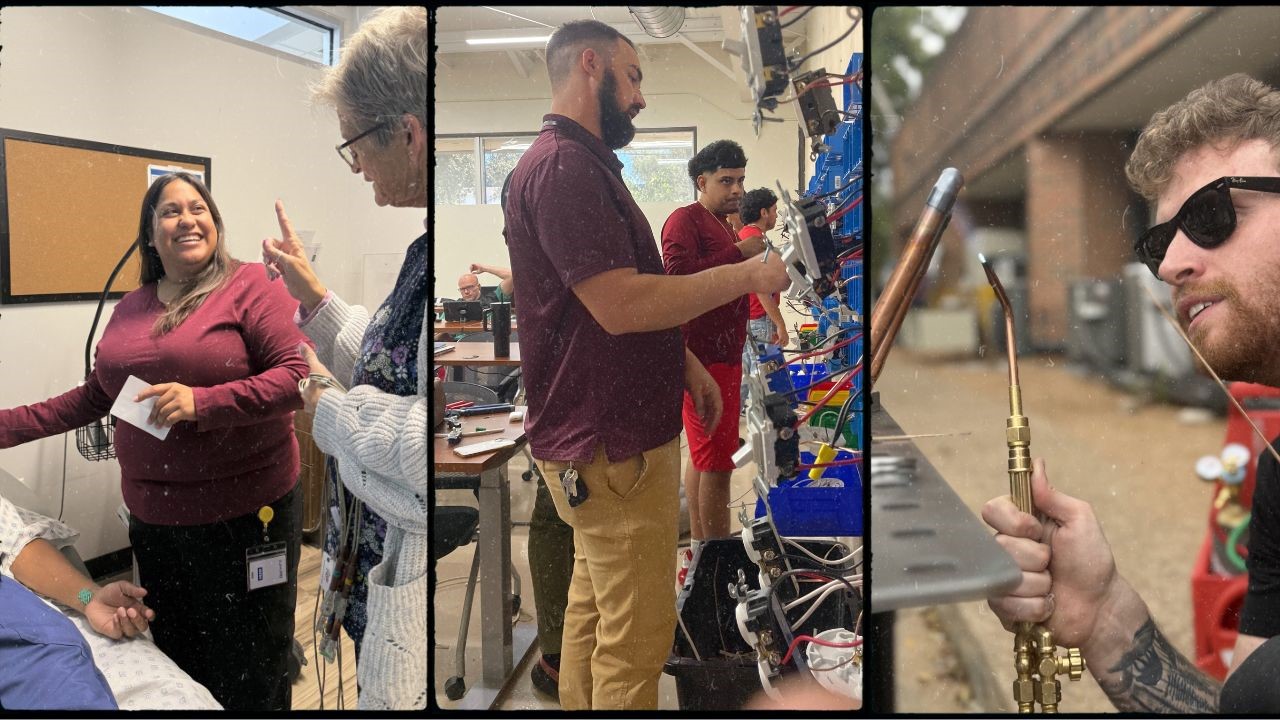At Austin Career Institute (ACI), we’ve always believed that education should deliver results, and now we have the data to prove it. A new workforce evaluation shows exactly how much ACI graduates are increasing their earnings after completing our training programs.
We’re not just talking about career opportunities. We’re talking high-demand trade careers in Texas with measurable, life-changing income growth—without the years of debt that often come with traditional education.
We’re not just talking about career opportunities. We’re talking high-demand trade careers in Texas with measurable, life-changing income growth—without the years of debt that often come with traditional education.
📈 The Numbers Speak for Themselves
Using verified employment and wage data from the Texas Workforce Commission (TWC), ACI analyzed the average quarterly earnings of 669 students from 2019 to 2024. Here’s what the results showed:
Some groups even saw more than a 100% increase in earnings within five years of completing their program.
- Before enrolling, the average student earned about $7,500 per quarter (~$30,000 per year).
- One year after completing training, that average increased to $11,000 per quarter (~$44,000 per year).
- By the third to fifth year, graduates from earlier cohorts were averaging $14,500 per quarter, or nearly $58,000 annually.
Some groups even saw more than a 100% increase in earnings within five years of completing their program.

*Source:
Employment and wage outcomes based on Austin Career Institute (ACI) workforce training participants, 2019–2024. Data analyzed using Texas Workforce Commission W-2 records. (ACI Research Brief, June 19, 2025).
💼 Training That Gets You Working—Fast
ACI programs are built for speed and focused on outcomes. In 7–8 months or less, students are trained and prepared for certification in:
We focus on the skills employers are actively hiring for right now. With hands-on training, industry-aligned certifications, and bilingual instruction (English and Spanish), we prepare students to move quickly into better-paying roles across high-demand industries.
- Medical AssistingHVAC-R Technology
Electrical and Renewable Energy
Phlebotomy
We focus on the skills employers are actively hiring for right now. With hands-on training, industry-aligned certifications, and bilingual instruction (English and Spanish), we prepare students to move quickly into better-paying roles across high-demand industries.
🔧 Why ACI Makes a Difference
What sets ACI apart is more than just program length. It’s how we support you from day one:
Whether you're looking to switch careers, increase your income, or finally step into a professional role, ACI makes that journey possible—and fast.
- Short-term, affordable training designed to lead to long-term income.Real-world labs and experienced instructors who know what employers are looking for.
Career support with job placement assistance and employer connections.
Flexible options for working students and families.
Whether you're looking to switch careers, increase your income, or finally step into a professional role, ACI makes that journey possible—and fast.
🧾 What the Data Tells Us
Let’s look at a real example:
In every year studied, graduates saw upward trends in both wages and job stability.
- Graduates from 2019 averaged $7,442 before training. Within five years, their quarterly earnings jumped to $14,503.2020 graduates went from $7,635 to $17,281 per quarter by 2024.
Even newer cohorts—like those from 2022 and 2023—are already showing significant income growth after just one year.
In every year studied, graduates saw upward trends in both wages and job stability.
🎯 It’s Time to Invest in Yourself
You don’t need a four-year degree—or years of debt—to start earning more.
At ACI, your training is fast, focused, and built around real career results. With verified wage data backing up our programs, you can feel confident that this is a smart step toward financial independence.
At ACI, your training is fast, focused, and built around real career results. With verified wage data backing up our programs, you can feel confident that this is a smart step toward financial independence.
👉 Start Your Career Path Today
Interested in one of these high-demand trade careers? Apply online or speak to our admissions team at austincareerinstitute.edu. We’ll help you explore financial aid options, program details, and start dates. Your future starts now.
Data Sources:
Employment and wage data sourced from the U.S. Bureau of Labor Statistics. Additional insights based on Texas Workforce Commission (TWC) W-2 employment and wage data as reported in Austin Career Institute Workforce Development Services Evaluation (2019–2024).
Data Sources:
Employment and wage data sourced from the U.S. Bureau of Labor Statistics. Additional insights based on Texas Workforce Commission (TWC) W-2 employment and wage data as reported in Austin Career Institute Workforce Development Services Evaluation (2019–2024).


